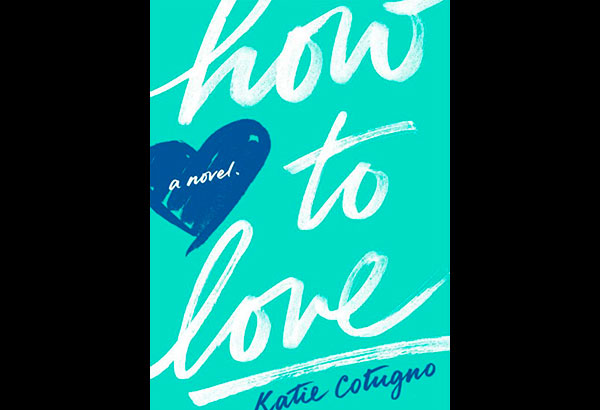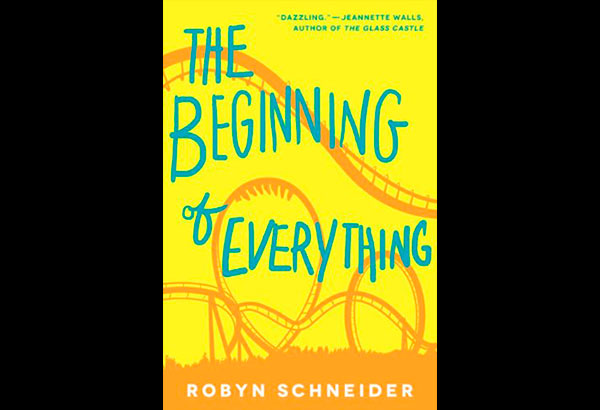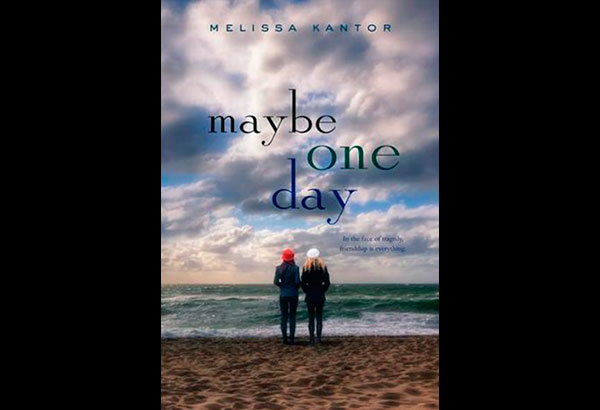YA makin’ me crazy
MANILA, Philippines - With the sea of young adult novels lining local book shelves lately, sometimes it’s hard to find one with a story that doesn’t make you think, “Haven’t I read this before?”
After reading book after book with the same awkward girl falling in love with a brooding mysterious guy (encapsulated by the @broodingYAhero Twitter account), it can be hard to believe that the people behind some of these novels aren’t exploiting their teen readers using a tried and tested formula. Sure, there’s the occasional fantasy or horror that deviates from the normal, but it’s the romance sub genre that’s got a stigma attached to it.
Authors Katie Cotugno (How to Love), Melissa Kantor (Maybe One Day) and Robyn Schneider (The Beginning of Everything) are aware of how people regard the genre, and they aim to prove these peeps wrong. Just look at their books — though seemingly light and fluffy on the surface, dig deeper and you’ll find that they tackle real issues and deconstruct conventional tropes at the same time.
Fresh from their packed book signing at National Book Store, Young STAR got to talk to these three authors about the teenage experience and manic pixie dream girls.
YOUNG STAR: Hi, Katie! The protagonists in your books — Molly and Reena — seem to want to get out of their respective hometowns to head to college, to travel. Was it a conscious decision to center your books on the theme of wanderlust?
KATIE COTUGNO: That’s a really good question, and I don’t know if I had thought that much about it. Yeah, actually I think that both Molly and Reena kind of have it in their heads that they have to get away before they can kind of grow and become who they’re really gonna be. And what they ultimately discover is that I think that that’s probably true to an extent but they also do a ton of settling into themselves before they leave. So yeah, I think that wanderlust is definitely a theme that I’ve been interested in and something I’ve experienced in my own life.

There are a lot of love triangles and cheating in love stories. What made it interesting for you to write about it in 99 Days?
KC: I wanted to take a love triangle, which is a very well-trod trope. People tend to approach it one way or the other. I wanted to see if I could write a true love triangle. When I was talking about the idea for this book, somebody told me that they didn’t think that there was such a thing as a true love triangle where someone could have feelings of equal intensity for two people at one time. I was like, “I don’t know if I agree with that.” I think that the feelings that Molly has for Patrick and the feelings that she has for Gabe are very different. But I think the way she feels for them, the intensity is equal.
Hey, Robyn! I read that you actually have a medical background. What’s it like to shift between medicine and the arts?

ROBYN SCHNEIDER: I always secretly wanted to be a writer. I always was really good in school, and I related so much to Hermione from the Harry Potter books. And when you’re a very good student, people tell you, “Oh, you should be a doctor, you should be a lawyer, you should go to business school.” I kept writing novels as a hobby and in my spare time. So I was really happy that, when I submitted my book, there was a publisher who wanted to buy it and I had this offer on the table suddenly to write another book as well, and to become a full-time writer. But I don’t think I would’ve taken the leap if I had to go out into the world and hope. I think I really needed to have the path set for me.
Were you aware of the Manic Pixie Dream Girl trope when you were writing The Beginning of Everything and Extraordinary Means?
RS: Oh, yeah, definitely.

I noticed that you tried to deconstruct it. What made you decide to do that?
RS: I think as a woman, writing about the Manic Pixie Dream Girl is very different than trying to explain it or use it as a man. Basically, Cassidy is like a warning of how it’s never wise to try and be somebody’s Manic Pixie Dream Girl. They see the Manic Pixie moment, but they don’t see the real girl. Even if you think that it will help you get a boy, I think honesty is what helps you find a meaningful relationship with people. And you know, just trying to come into their life and try to blow through it in a very beautiful and picturesque way is never the best version of what you can be for anyone.
What about you, Melissa? YA novels are usually about friendships and the bonds that people make. In fact, Maybe One Day focuses on the lives of best friends going through a difficult situation. Why do you think there’s so much interest in that part of growing up?
MELISSA KANTOR: When I think back on my years as a teenager, a lot of my time was spent talking about boys, and boys I liked, and boys I thought liked me, and boys I wished liked me. Now, as I look back on it, I realize that what really mattered is the person who I was having those conversations with. I don’t remember who those boys were. But the people who I was friends with then, one of them in particular is my closest friend. The book is actually dedicated to her, to have that chance in these relationships. I think in adolescence, you get to spend a lot of time with your friends, and you get to talk everything over with them. That’s really precious to me. And I wanted to write a story that really captured that remarkable connection that you have with your best friend.
What moment from your time in high school have you read about recently in a YA book? Has there ever been a time when you paused after reading a certain scene in a book because you remembered having experienced something similar in the past?
One of the wonderful things to me about reading any novel is having the chance to see things that have happened to you or things that haven’t happened to you but are similar and having someone describe it really well. I just read a novel where someone describes a horrible dinner party. And some of the descriptions of the things that happened are so great and perfect and right on that I felt like I was seeing my own experiences more clearly, even though, obviously, he wasn’t writing about them. What I really love when I’m reading a YA novel or a middle grade novel is when I am reminded of an aspect of childhood that I forgot. I’m 45. When I wear a bathing suit, I don’t care what I look like. I’m not self-conscious. I remember reading a book a few years ago that perfectly captured the agony of being 12 and having to go out in public in a bathing suit. It was really honest, and it was really accurate. If someone asked me what it was like to wear a bathing suit when you were 12, I don’t think I would have remembered. And I was like, “Oh, my God! That was exactly what it was like.”
* * *
How to Love, Maybe One Day and The Beginning of Everything are available at all National Bookstore branches nationwide.















